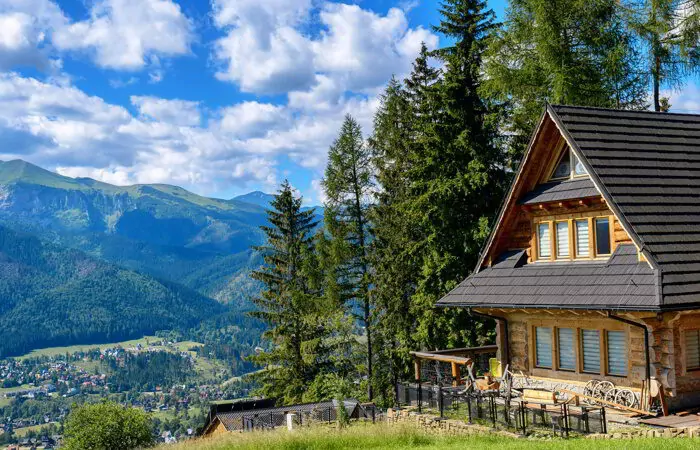
Planting Flags Offshore Is A Marathon, Not A Sprint
The Real Upside To Planting Flags Offshore
In 2005, Kathleen and I planted a flag in Croatia.
We bought an old stone farmhouse that needed complete renovation. The plan was to renovate it and then turn the property into a short-term rental that we could use ourselves for vacations.
Sixteen years later, that’s still the plan, and we are this month, finally, actually starting the renovation work.
How did 16 years pass without us following through on this straightforward plan?
Shortly after we made the purchase, we moved from Paris to Panama, where we were too far away to manage a renovation project in Europe.
Still, 16 years is a long time to keep something like this on a shelf. The good news is that Croatia doesn’t charge property tax… meaning no carrying costs all these years.
We bought the house in Croatia as part of our long-term plan.
Kathleen and I don’t intend to retire in a conventional sense. We like the work we do. We also, though, prioritize change and discovery.
So our long-term lifestyle plan is to have places in parts of the world where we like to spend time that also earn rental income in different currencies. Our house in Istria will contribute to our euro cash flow.
What Planting Flags Offshore Is Really About
The point of my sharing the story of our long-ignored investment in Croatia is to show that planting flags offshore and internationalizing your life isn’t a sprint… it’s a marathon.
Many people feel, especially if they’re getting started at this later in life, that they have to move fast to catch up. Diversifying your life across borders takes planning. Pushing ahead too quickly can lead to mistakes that you might not be able to undo easily… or cheaply.
On the other hand, you want to remember another of my mantras—that is, when an opportunity presents itself that fits with your objectives and that you qualify for, take action. Deliberating too long can mean missing out.
This rule applies mostly to residency and citizenship programs… and banking. Because the rules are constantly changing.
You don’t want to miss out on easy residency option, for example, as is the case now for so many people who were thinking they’d eventually apply for Panama’s Friendly Nations visa. The rules for this program have changed significantly this year, and many who waited too long now find themselves facing a US$200,000 investment requirement just to get temporary residency.
That said, you aren’t going to create a complete lifestyle and portfolio diversification plan overnight. And that’s OK. As your knowledge base and travel experience expand, you might decide that one flag or location you’d been considering isn’t as attractive to you as something new that comes onto your radar.
Planting Flags Offshore Is A Balancing Act... And Flexibility Is Key
We could have decided to sell the house in Croatia at any time over the last 16 years. In fact, we discussed the idea a couple of times because we weren’t sure when we’d ever be able to follow through with the renovation. Each time we assessed our current global plan and came back to the same decision: We wanted this house in Croatia not only as a part of our long-term plan for ourselves but also as part of our legacy for the kids and grandkids.
And, if we sold the property in Croatia, we’d ask ourselves, what would we do with that capital? We never had a compelling answer to that question… so we continued holding the asset we had.
A couple of years before we bought the house in Croatia, we invested in some land on an island in Nova Scotia. We intended that purchase as a medium-term flip. The developer friend who sold us the property got our attention with a path-of-progress pitch. A new ferry route was planned between Maine and Nova Scotia nearby to where the land in question was located. That was expected to lead to a boom in tourism.
The ferry never happened, and we’ve been sitting on the seven-acre lot ever since. The property has been listed for sale on and off over the years with no offers… until recently.
The listing agent wrote earlier this year to say that this island is seeing a surge in attention… probably as a result of the growing, pandemic-fueled demand for wide-open spaces in beautiful and remote parts of the world.
The agent told me that this summer he was sure he’d find a buyer for the land at an excellent price.
At last, we’d be able to exit this buy… with enough profit to make the long hold worthwhile.
Except… wait… no… not so fast…
When I mentioned the conversation with the real estate agent over dinner with my son the next night, his face fell.
“We own a piece of land on an island in Nova Scotia?” he said. “I didn’t know that.
“Could we build a log cabin there?” he wondered.
How could I walk away from an invitation like that… a chance to build a log cabin with my son?
That project will have to wait until the renovation in Croatia is completed… and until after my son finishes university.
Nevertheless, it’s another good example of the importance of flexibility in your long-term planning. The real payoff for any flag you plant could take time to present itself.
Lief Simon



